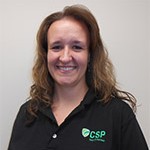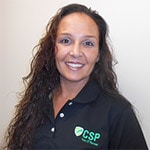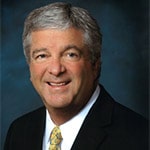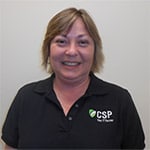1310 Nowell Road
Raleigh, NC 27607
1310 Nowell Road
Raleigh, NC 27607
Existing CSP Client: (919) 424-2060
SALES: (919) 420-3231
Since you can’t forecast IT outages, accidents or the weather, you should formulate a business contingency plan. A BCP minimizes losses after unforeseen events.

Since you can’t forecast IT outages, accidents or the weather, you should formulate a business contingency plan. A BCP minimizes losses after unforeseen events.
If you had a crystal ball, you wouldn’t need a business continuity plan. However, since you can’t forecast IT outages, accidents, the weather or employee illness, it’s time to put together a contingency plan. A business continuity plan helps minimize losses following unforeseen events.
If you don’t have a BCP, a flood, fire or another catastrophe could lead to lost clients and the inability to serve your customers — it could even put you out of business. With a plan in place, your business is prepared to stay afloat through adversity.
Preparing for the plan itself reduces your risks by ensuring connectivity to resources such as cloud-hosted PBX and phone providers. When you evaluate areas of risk and strengthen them, it also prevents service interruptions by unexpected events.
Once a business continuity plan is ready, a copy should be distributed to all employees. More importantly, everyone should understand their role in case of an emergency. Drills and testing scenarios are a vital part of ensuring your plan covers all major components of your IT systems, customer data and tools used by the business.
An effective business continuity plan outlines what to do during and after a crisis to keep the business running. Responsible parties need to be identified for each task. This provides continuity and a clear management structure in uncertain times. Granting certain leaders unilateral power avoids management by committee, which may not be effective in an emergency.
An effective BCP looks at potential threats — anything from viral infections to power loss. Great plans include preparation to streamline operations to make recovery simple. In addition, the plan must provide, step-by-step details on how to resume operations.
Set realistic training schedules so all staff members know their roles during an emergency. Having a plan saves a lot of panic and indecision if something unexpected occurs. Training solidifies the role that each person will play, giving your Disaster Recovery Team confidence and surety in case they ever need to fill those roles for real.
Strategic recovery steps are another key part of a comprehensive BCP. Start with contact details for key players, including the CEO and legal advisors. These individuals are the first line of communication in an emergency. It’s equally important to document key external agencies, such as customers, vendors and business partners impact by the emergency, as well as ambulance, fire and security protocols.
Track down and include emergency systems like data backup sites and power generators. Make sure all relevant staff members can access this information. Backup communications systems, such as alternate T1 lines, email address or cell phones, should be available as applicable to staff members.
Use the following questions to identify keys functions and services for your operations:
These questions help you determine the essential business functions to include in your BCP.
Business continuity planning is an important part of protecting your business as an ongoing concern. A BCP helps ensure that your end users can function after a disaster. It’s very much a document that speaks to last resorts — and involves making hard decisions to keep your company running. As such, it documents how the premises, staff and systems are protected as part of the plan. On the other hand, it should also document how to avoid ever having to carry the plan out.
A consultant can help you compile the plan and make sure all preparations are completed. This may include making sure the premises meet safety regulations. Some businesses designate employees to attend first aid so they can deal with medical issues during the course of a workday or emergency. At the very least, conduct safety meetings so everyone knows where first aid kits and fire extinguishers are located.
All staff members should understand the proper evacuation procedures. This training includes emergency drills, clear identification of emergency exits and meeting points. Your IT support staff or service provider should also document protocols for regular data backup and virus and malware protection. Surge protection should be standard for every work station.

Always at your service to provide the highest level of quality support to our customers.

Anthony Firth Client Engineer

“I’m passionate about building and fostering relationships, and finding solutions for success.”

Michael Koenig Client Account Manager

“I help clients stabilize and grow their IT infrastructure so they can focus on growing their core business.”

Josh Wilshire Systems Engineer Team Lead

“I strive to provide the highest level of quality service to our customers.”

Tommy Williams Sr. Hardware Engineer

“I’m driven by the steadfast belief that technology must serve as a business enabler. This mantra has driven 21
Years of successful partnerships.”

Stephen Riddick VP Sales & Marketing

“CSP doesn’t succeed unless your company succeeds.”

Stephen Allen Inventory Manager

“Through my intuition and genuine concern to help others I have built long-lasting relationships with our customers, co-workers and business partners.”

Scott Forbes VP Support Services

“Every day, I work with clients to help plan the future of their businesses.”

Michael Bowman vCIO

“Your IT problems become our IT solutions.”

Mark McLemore Project Engineer

“Managing internal and external operations to ensure that CSP provides quality and reliable customer service .”

Margie Figueroa Business Manager

“Providing quality internal and externals financial support to our customers and accounting support to CSP.”

Katie Steiglitz Accounting Administrator

“Some call me the CEO. I call myself the Cheerleader for an awesome team!”

William B. Riddick Founder & CEO

“CSP is here to assist you with your IT needs.”

Beth Wylie Inside Sales Manager




On What Questions You Need To Ask Before Signing Any Agreement.
"*" indicates required fields

Raleigh IT Support Company and IT Services Provider | CSP Inc.
1310 Nowell Rd,
Raleigh, NC 27607
Existing CSP Client: (919) 424-2060
SALES: (919) 420-3231
Receive email updates and informative marketing materials by subscribing to our newsletter.
"*" indicates required fields